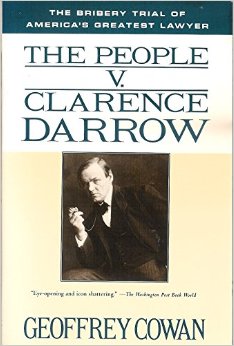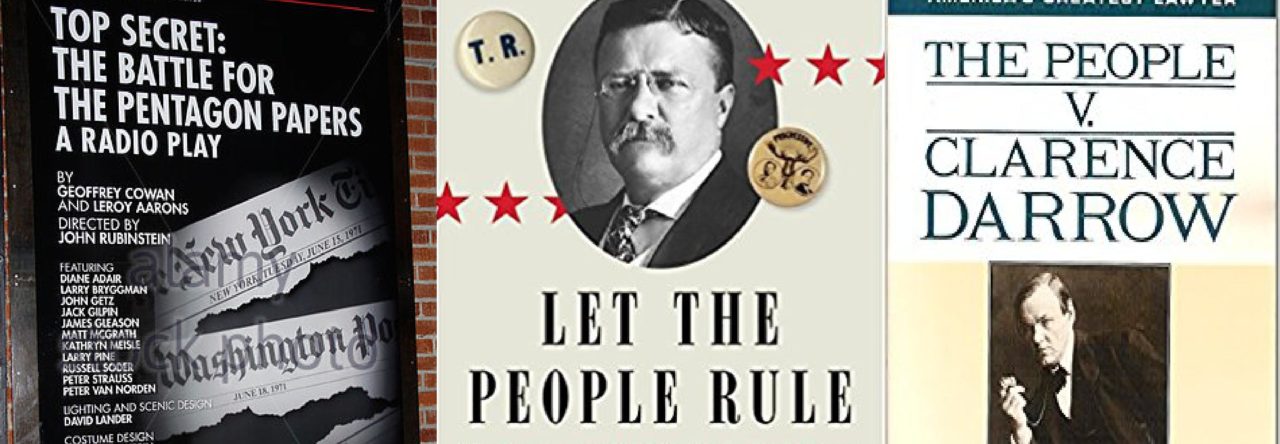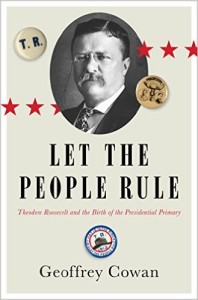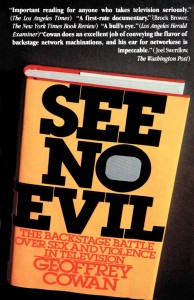Let the People Rule: Theodore Roosevelt and the Birth of the Presidential Primary
“Cowan has brought to life a fascinating part of TR’s story usually left out of the history books. He tells it with verve and suspense, warts and all, his insights deepened by his own impressive background as a democracy activist.”
― Adam Hochschild, author of To End All Wars
Let the People Rule tells the exhilarating story of the four-month campaign that changed American politics forever. In 1912 Theodore Roosevelt came out of retirement to challenge his close friend and handpicked successor, William Howard Taft, for the Republican Party nomination. To overcome the power of the incumbent, TR seized on the idea of presidential primaries, telling bosses everywhere to “Let the People Rule.” The cheers and jeers of rowdy supporters and detractors echo from Geoffrey Cowan’s pages as he explores TR’s fight-to-the-finish battle to win popular support. After sweeping nine out of thirteen primaries, he felt entitled to the nomination. But the party bosses proved too powerful, leading Roosevelt to walk out of the convention and create a new political party of his own.
Using a trove of newly discovered documents, Cowan takes readers inside the colorful, dramatic, and often mean-spirited campaign, describing the political machinations and intrigue and painting indelible portraits of its larger-than-life characters. But Cowan also exposes the more unsavory parts of TR’s campaign: seamy backroom deals, bribes made in TR’s name during the Republican Convention, and then the shocking political calculation that led TR to ban any black delegates from the Deep South from his new “Bull Moose Party.”
In this utterly compelling work, Cowan illuminates lessons of the past that have great resonance for American politics today.
Buy Now | Tour Dates | Reviews
The People v. Clarence Darrow: The Bribery Trial of America’s Greatest Lawyer
“…a highly readable account of the trial. Highly recommended to a wide range of general readers.”
— Jerry Stephens, U.S. Court of Appeals Lib., Oklahoma City
 The dramatic story of the defense attorney’s 1912 bribery trial and the spectacular events leading up to it. A revisionist biography and a rich courtroom drama, here is a fascinating look at L.A. law at the turn of the century and the corruption of justice by the wealthy and powerful.
The dramatic story of the defense attorney’s 1912 bribery trial and the spectacular events leading up to it. A revisionist biography and a rich courtroom drama, here is a fascinating look at L.A. law at the turn of the century and the corruption of justice by the wealthy and powerful.
“America’s greatest lawyer! The record might justify granting that title to Clarence Darrow. He defended the unpopular in dramatic criminal trials: labor leaders after the Haymarket Riot; coal miners in Pennsylvania; and war protesters charged with violations of state sedition laws. But Darrow is best remembered for his defense of John Scopes, charged with violations of state law for the teaching of Darwinian evolution. Darrow is not so well remembered, however, for perhaps his most important criminal defense: that of his own trial for allegedly bribing jurors in the trial of two labor leaders charged in the dynamiting of the Los Angeles Times building. The two books that principally defined Darrow’s popular image–his own autobiography, The Story of My Life (1932) and Irving Stone’s Clarence Darrow for the Defense (1941)–glossed over this matter. Cowan, an attorney practicing law in Los Angeles, attempts to fill this void with a highly readable account of the trial. Highly recommended to a wide range of general readers.” — Jerry Stephens, U.S. Court of Appeals Lib., Oklahoma City
See No Evil: The Backstage Battle over Sex and Violence in Television
“Important reading for anyone who takes television seriously.”
— The Los Angeles Times“Cowan does an excellent job of conveying the flavor of backstage network machinations, and his ear for networkese is impeccable.”
— Joel Swerdlow, The Washington Post
Sex and violence on prime-time television and the complex question of censorship – these are issues that have polarized the TV medium and created some unprecedented alliances among members of Congress and special interest groups. What kinds of programs are truly inappropriate for television, and how should the government and the sponsors play? What has determined television programming in the past and what can be expected in the future?
In See No Evil, the reader is given insight into the usually secret inside world of network politics with the immediacy and dramatic flair of a “sit-com”. The book also reveals the interplay of such personalities as Norman Lear, Arthur Taylor, William Paley, Lee Grant, Fred Silverman and David Rintels. And Goeffrey Cowan shows how a circle of men continues to dominate television programming with an eye on the ratings rather than on the content of their shows.
Top Secret: The Battle for the Pentagon Papers
In a democratic society, there is an inevitable tension between the need of the government to protect secrets in the name of national security, and the right of the press to print all but the most dangerous of those secrets, particularly when the claim of “secrecy” is used to cover up politically damaging government decisions. Top Secret: The Battle for the Pentagon Papers is an inside look at the Washington Post’s decision to publish the top-secret study documenting the United States’ involvement in Vietnam. The subsequent trial tested the parameters of the First Amendment, pitting the public’s right to know against the government’s claim of secrecy. The epic legal battle between the government and the press went to the nation’s highest court and is arguably the most important Supreme Court case ever on freedom of the press.
In this riveting historical docudrama by Geoffrey Cowan and Leroy Aarons, Top Secret: The Battle for the Pentagon Papers, L.A. Theatre Works brings these important days and the subsequent trial to life as the Washington Post struggles with the decision to publish these “classified” documents. The play, based on a wide range of sources, including interviews and documents obtained through the Freedom of Information Act, follows the debate played out at the home of Ben Bradlee, (the paper’s famous editor) as his staff sorts through the documents and tries to decide if publishing the Papers violates national security. The play includes their momentous decision and the legal wrangling that followed — leading up to the historic decision that reaffirmed the First Amendment. Our government’s relationship to the media, the citizenry’s right to information, and the First Amendment are all critically explored against the canvas of the Vietnam War and the secretive Nixon White House.
If you want to learn more about the Play and the Pentagon Papers, go to TopSecretPlay.org.






